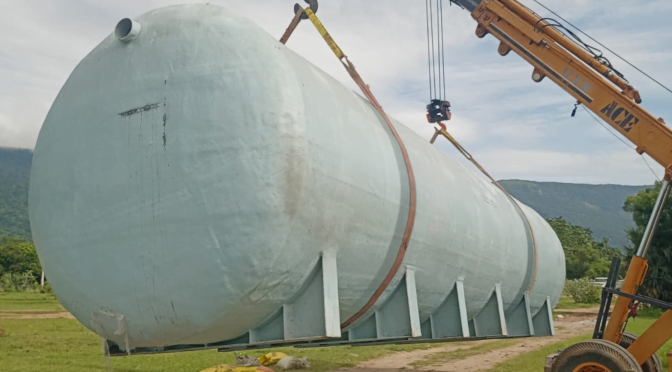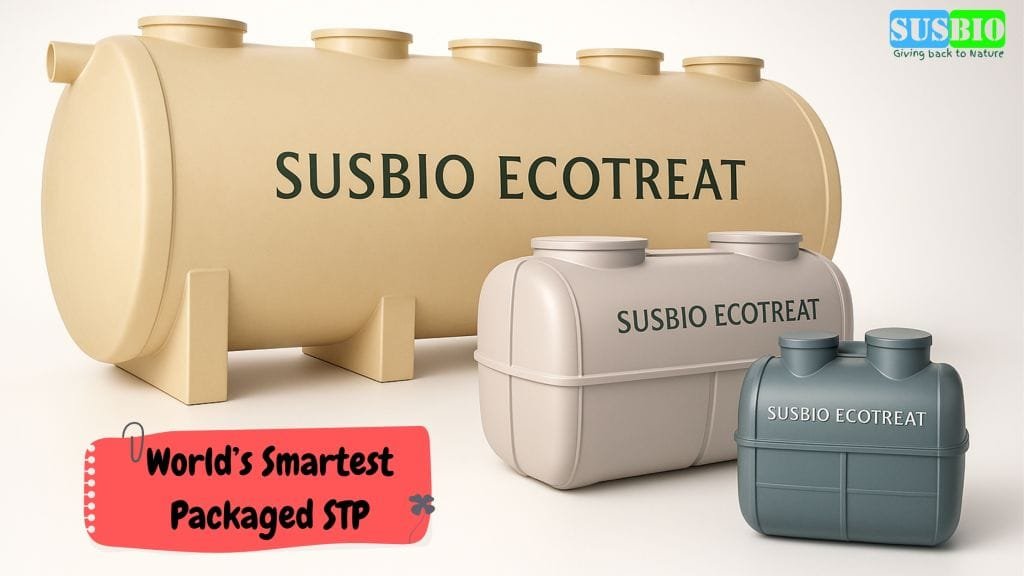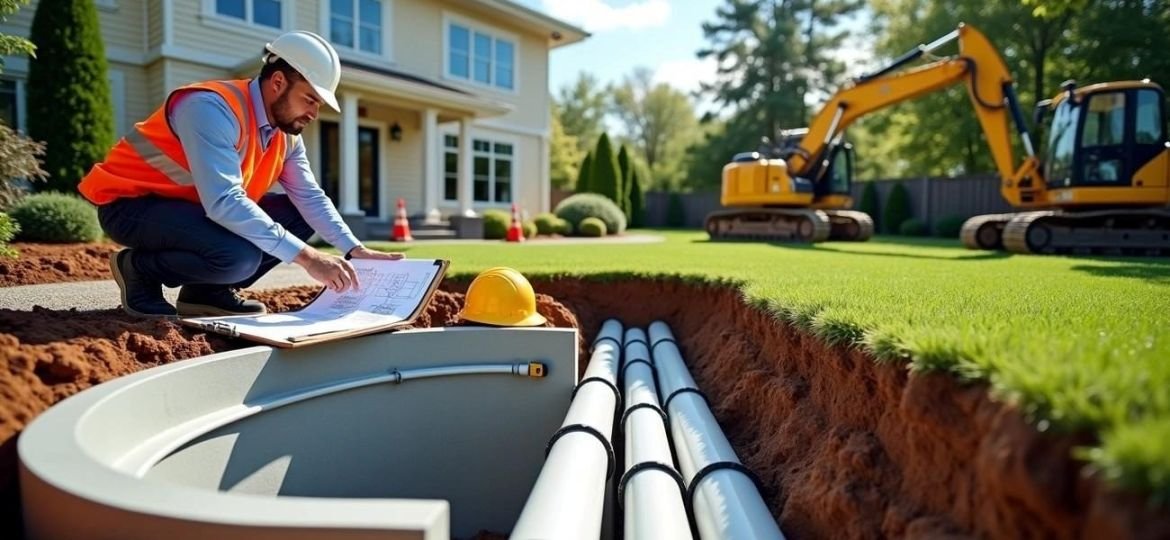With increasing concerns about water scarcity and pollution, many homeowners in India are turning to sewage treatment plants for domestic use. These systems not only provide a sustainable way to treat wastewater but also contribute to the conservation of water resources. Installing a sewage treatment plant for domestic use helps homes manage sewage efficiently while adhering to environmental norms.
Sewage Treatment Plants
Sewage treatment plants (STPs) are essential infrastructure components that play a vital role in protecting public health and the environment. They are designed to process wastewater generated from various sources, including households, industries, and commercial establishments.
How can housing societies in India adopt efficient sewage treatment solutions to address wastewater management?
Housing societies in India can adopt efficient sewage treatment solutions by considering several key factors to ensure proper wastewater management and sustainability. Here are some essential steps:
- Choosing the Right Sewage Treatment Plant (STP):
Housing societies must evaluate the type of sewage treatment plant for housing societies that best suits their needs. Solutions like SUSBIO ECOTREAT offer eco-friendly, low-maintenance, and cost-effective treatment options, making them ideal for residential complexes. These systems ensure compliance with local regulations while being energy-efficient and sustainable. - Assessing the Capacity and Size:
Housing societies should assess their population size and water usage to determine the appropriate size and capacity of the STP. Over-sized or under-sized plants can lead to inefficiency and higher operational costs. - Incorporating Energy-Efficient Technologies:
Efficient sewage treatment solutions incorporate advanced technologies like biological treatment processes and membrane bioreactors, which reduce energy consumption and maintenance. These systems minimize electricity use while ensuring optimal wastewater treatment. - Implementing Reuse and Recycling Systems:
Housing societies can also focus on water reuse and recycling by incorporating treated water for landscaping, flushing toilets, and other non-potable purposes. This not only reduces water wastage but also contributes to significant cost savings in the long run. - Regular Monitoring and Maintenance:
Once an STP is installed, regular monitoring and maintenance are essential to ensure it operates efficiently. Housing societies should partner with experienced service providers who offer maintenance contracts to avoid downtime and ensure consistent performance. - Educating the Residents:
Awareness campaigns within the housing society about the importance of wastewater management and water conservation can drive participation. Encouraging residents to minimize water wastage and dispose of waste responsibly can significantly improve the efficiency of the STP. - Ensuring Compliance with Local Regulations:
Housing societies must ensure that their sewage treatment plants comply with the regulatory standards set by local municipal authorities. This includes adhering to guidelines regarding the quality of treated water and ensuring timely disposal of sludge.
By following these steps, housing societies in India can adopt efficient sewage treatment solutions that ensure proper wastewater management, reduce environmental impact, and provide long-term benefits to the community.
Types of Sewage Treatment Plants
STPs can be categorized into different types based on their size, location, and treatment processes:
- Municipal STPs: These are large-scale plants that serve entire cities or regions. They typically employ a combination of physical, chemical, and biological processes to treat wastewater.
- Industrial STPs: These plants are designed to handle wastewater generated by industries, such as manufacturing facilities, chemical plants, and food processing plants. They often require specialized treatment processes to remove specific contaminants.
- On-site STPs: These smaller-scale plants are located on-site at individual properties, such as hotels, hospitals, and large residential complexes. They provide a more localized solution for wastewater treatment system.
Treatment Processes
STPs utilize a variety of treatment processes to remove contaminants from wastewater. Common processes include:
- Primary treatment: This involves removing large solids and grit from the wastewater through screening and grit removal processes.
- Secondary treatment: Biological processes, such as activated sludge or trickling filters, are used to break down organic matter in the wastewater.
- Tertiary treatment: This optional stage involves removing remaining contaminants, such as nutrients and pathogens, through processes like filtration and disinfection.
Importance of STPs
STPs are essential for:
- Protecting public health: By preventing the spread of diseases through contaminated water.
- Safeguarding the environment: By preventing water pollution and protecting aquatic ecosystems.
- Conserving water resources: By treating wastewater for reuse, reducing the demand for fresh water.
- Promoting sustainable development: By supporting economic growth and improving quality of life.
What is a Domestic Sewage Treatment Plant?
A domestic sewage treatment plant is designed to treat wastewater generated from households, such as from toilets, sinks, and washing machines. These plants employ various biological, chemical, and physical processes to remove contaminants from the wastewater, making it safe for reuse or discharge into the environment.
Where Can Domestic Sewage Treatment Plants Be Used?
Domestic sewage treatment plants can be implemented in various settings, including:
- Residential communities: Apartments, housing societies, and gated communities can benefit from having their own STPs to manage wastewater locally.
- Rural areas: Villages and towns can utilize STPs to improve sanitation and protect water resources in rural regions.
- Hotels and resorts: These establishments often generate significant amounts of wastewater and can benefit from having their own STPs.
- Educational institutions: Schools, colleges, and universities can implement STPs to manage wastewater generated on their campuses.
Understanding Domestic Sewage Treatment Plant Cost
The cost of a domestic sewage treatment plant varies based on factors like capacity, technology, and maintenance needs. Here’s a quick breakdown:
1.Cost Overview by Plant Capacity:
Plant Capacity (KLD) | Estimated Cost (INR) | Best For |
1-5 KLD | ₹1,50,000 – ₹3,00,000 | Small homes, small societies |
10-50 KLD | ₹4,00,000 – ₹15,00,000 | Medium to large housing societies |
50 KLD & Above | ₹15,00,000 & Above | Large-scale industrial/commercial use |
2. Technology
Advanced technologies like SUSBIO ECOTREAT are energy-efficient and low-maintenance, which can raise the initial cost but save money in the long run.
3. Installation Location
Costs can vary based on site conditions (e.g., land and soil type). More complex installations will increase costs.
4. Maintenance Costs
Low-maintenance systems, like SUSBIO ECOTREAT, reduce long-term costs compared to more traditional systems that require frequent servicing.
Final Thoughts
While the initial cost of a domestic sewage treatment plant can vary, investing in the right system, like SUSBIO ECOTREAT, provides long-term savings and environmental benefits.
Advanced Domestic STP- SUSBIO ECOTREAT
SUSBIO ECOTREAT is an innovative solution designed to revolutionize the way we handle wastewater. As a highly advanced Prefabricated Sewage Treatment Plant, SUSBIO ECOTREAT combines cutting-edge technology with sustainability to deliver exceptional results. Whether for commercial, residential, or industrial use, this sewage treatment plant is built to meet diverse wastewater treatment needs efficiently and reliably.
What Makes SUSBIO ECOTREAT Special?
At its core, SUSBIO ECOTREAT is a sewage treatment plant crafted from high-quality fiber-reinforced plastic, ensuring durability and long-term performance. Its prefabricated design not only simplifies installation but also significantly reduces maintenance time and costs. This makes it an ideal choice for modern sewage treatment process where convenience and reliability are key.
One of the standout features of SUSBIO ECOTREAT is its dual-treatment process. By integrating both anaerobic and aerobic treatment methods within a single unit, this sewage treatment plant guarantees complete purification of wastewater. This dual process ensures the effective removal of pollutants, organic waste, and harmful contaminants, producing treated water that meets the highest environmental standards.
Key Features of SUSBIO ECOTREAT
Prefabricated Design: This sewage treatment plant is delivered ready to install, cutting down on both setup time and costs.
Advanced Automation: SUSBIO ECOTREAT is fully automated, meaning it operates with minimal human intervention. The smart automation technology also helps reduce electricity consumption, making it energy-efficient and cost-effective.
Dual-Treatment Process: The use of anaerobic and aerobic treatment methods ensures comprehensive wastewater treatment, removing organic matter and harmful contaminants efficiently.
Eco-Friendly and Cost-Effective: Designed with sustainability in mind, SUSBIO ECOTREAT lowers your carbon footprint while minimizing operational costs. Its energy-efficient design makes it an eco-friendly choice for any setting.
Durable and Long-Lasting: Built with state-of-the-art fiber-reinforced plastic, this sewage treatment plant is designed to last, ensuring you get value for your investment.
Why Choose SUSBIO ECOTREAT?

SUSBIO ECOTREAT is more than just a sewage treatment plant; it’s a sustainable and innovative solution designed to meet modern wastewater treatment challenges. As a leading Sewage Treatment Plant Manufacturer, we aim to provide top-notch sewage water treatment solutions that help businesses, industries, and communities achieve their environmental goals while reducing operational costs. With its advanced features and eco-friendly design, SUSBIO ECOTREAT sets a new standard in wastewater treatment.
For anyone seeking an efficient, reliable, and environmentally responsible sewage treatment plant, SUSBIO ECOTREAT, along with well water treatment systems, is the perfect choice.
Conclusion
Domestic sewage treatment plants are essential for safeguarding public health, protecting the environment, and conserving water resources. SUSBIO ECOTREAT offers a revolutionary solution for effective and sustainable wastewater treatment management in India. With its advanced technology, energy efficiency, compact design, and minimal maintenance requirements, SUSBIO ECOTREAT is the ideal choice for individuals, communities, and businesses seeking to improve their environmental footprint and contribute to a cleaner and healthier future.
Contact us today to learn more about how SUSBIO ECOTREAT can revolutionize your domestic sewage treatment needs.













7 Comments
[…] Solutions: Whether you need a domestic STP for residential complexes or a solution for small industries, SUSBIO ECOTREAT can be […]
[…] SUSBIO ECOTREAT is highly customizable to meet specific needs, whether for small communities, domestic sewage treatment plants, or large industrial systems. Our design process begins with a detailed analysis of the incoming […]
[…] Domestic sewage treatment plant is a critical aspect of sustainable living, especially with increasing awareness about water conservation and environmental preservation. Among the popular solutions available in the market, Sintex STPs and SUSBIO ECOTREAT stand out for their unique features and benefits. This blog provides a comparative analysis of these two systems, focusing on their processes, performance, and why SUSBIO ECOTREAT is the superior choice for domestic sewage treatment plant. […]
[…] Hospitals generate large volumes of wastewater containing biological, chemical, and pharmaceutical contaminants that can severely harm the environment if not treated properly. Installing an efficient sewage treatment plant (STP) is not just a regulatory requirement but also a crucial step toward sustainable waste management in healthcare facilities. In this blog, we will explore why hospitals need sewage treatment plants, the ideal features of an STP for hospitals, and why SUSBIO ECOTREAT stands out as the best solution in effectively addressing domestic sewage water pollution. […]
[…] various industrial processes, ETPs ensure that harmful pollutants including those contributing to domestic sewage water pollution are removed before discharge into the environment, helping to mitigate the adverse effects of […]
[…] wastewater generated by residential, commercial, and industrial establishments, helping to address domestic sewage water pollution The primary purpose of an STP is to remove contaminants from the wastewater, making it safe for […]
[…] for a dependable, efficient water treatment solution for your property. addressing concerns such as domestic sewage water pollution […]